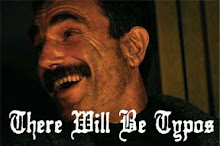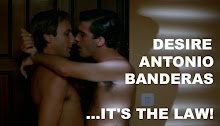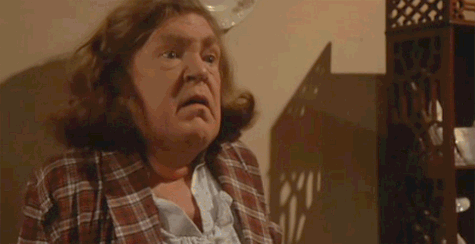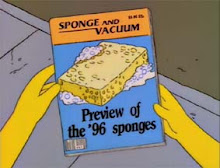But maybe things aren't always so dire...
I'm going to attempt to translate the true wonder of the Midwest by looking at those few films that capture the rare soul, spirit and scenery of this singular region -- as seen by someone still at the center of it. So to save you actually having to set foot here, I'll take you on a guided tour of the Midwest via the movies. It's cheaper, without the travel time, and you get to visit with the likes of Jack Nicholson, Laura Dern and Johnny Depp! So use the bathroom now, because we're not stopping on the way...

First Stop: Omaha, Nebraska
see: Citizen Ruth (also Election and About Schmidt)
One thing that can be hard to avoid when driving through the countryside are those colorful (ie. abundantly crazy) billboards of pro-lifers and fundamentalists. Nothing says "Welcome to Nebraska" like an unborn fetus and Jesus judging you. Director Alexander Payne was smart to place his social satires at the center of the country -- in this case the story of Ruth Stoops, a hopeless, drug addicted mom wedged in the middle of controversy surrounding her most recent abortion ("abortiai" as Sarah Silverman would say). While the Midwest region is often disparaged for being conservative, and for consistently being tied to skewed "values," things really aren't that simple here... so says this gay Omaha liberal.
I've been asked by strangers if I have cows in my backyard, but few people ask if there are people huffing paint back there as well, which is far more likely. Then again, that's probably universal, and people on the outside would much prefer to keep their quaint notions of simple farm folk over my reality of suburban sprawl and homeless people asking me for change.

In truth, the Omaha in Payne's films is mostly a plain, subdued backdrop, which is completely true to the city itself. Though not without its admirable qualities, Omaha is a city without a definable energy and visual richness. It's not unfair to say since it holds true of so many cities. Its specifics come in subtler ways, which Payne brings out in his characters and their day to day minimalism. Payne truly understands this because he's from here, and that's why the indistinct authenticity rings so true.

His films also serve as a "best of" travelogue. He captures the Omaha skyline (Warren Schmidt worked in what was, for many years, the single tall building: The Woodmen Tower), the surprisingly great Henry Doorly Zoo (seen as part of Tammy Metzler's day long lesbian excursion), even regional tourist traps like Harold Warp's Pioneer Village in Minden, Nebraska (Warren Schmidt loved it, I hung out in the gift shop then slept in the car.) It's obvious Payne knows and loves these surroundings, and his connection to them is palpable.

Next Stop: Lincoln, Nebraska, with a detour to Falls City, NE
see: Boys Don't Cry (see also Mysterious Skin)
As an out gay man in Nebraska, I've experienced the obvious stigmas alongside an ever growing notion of tolerance, but then I'm not completely lost in the rural abyss either. When Brandon Teena, born Teena Brandon, was killed in a sadistic hate crime in 1993, I was too oblivious and young to grasp its impact. Now I see the power in such grisly, tragic moments having happened in places I've actually stepped foot in: indistinguishable small towns you pass every day without notice. This grim true story follows Brandon's escape from Lincoln law enforcement to the remote emptiness of Falls City, where he befriends its many like outcasts, hoping to find their acceptance.

While one would think any gay person in the region should run like hell after seeing this movie, the truth is that Lincoln has a surprisingly large gay population. I can truly attest to this after seeing Kathy Griffin perform there live, to a massive collection of her local gays... The fears experienced in small town America, to those perceived as different, are justifiable though, and a relatively small city like Lincoln begins to seem radically progressive compared to the detachment and minimal connections of a one-note town like Falls City.


If there's one thing that director Kimberly Peirce captures most eloquently it's those nuances of small town escapism. Young people dream of moving onto the next big town and the next great thing, which could never seemingly happen in the wiles of desolate farm country. The character of Lana captures this dreamy youthfulness and stifled idealism perfectly. She works in the one nearby factory, she's surrounded by ex-cons and bored friends lost in their endless nights trying to attain beer from the local gas station, or those long drives down dark country roads without a destination. Her talents for karaoke in the single dive bar allow her to dream that she too could make it somewhere else, somewhere better. I think most small town Midwest teens will relate to this, perhaps small town kids anywhere.
see: The Children of the Corn
Then there's the other kind of Midwest kid... There's so much potential for horror in these wide open spaces, worn down churches and dilapidated country homes. The best we got to have set in Nebraska were creepy children named Job and Malachai. I've never met anyone in Nebraska with those names, but I will admit to seeing a number of creepy kids on any given day.
Fictional Gatlin was an inspired choice for Stephen King; a way to place terror amidst the mundane but maze-like fields of, well... maize. Also, an inspired choice to place the evil into the hands of scythe-wielding children getting comeuppance against power-yielding parents. Don't be disappointed if no child tries to sacrifice you, but don't be surprised if you get a few evil leers from bored neighborhood kids.
see: The Straight Story
I've yet to personally see an elderly man going cross country on a lawnmower, but Alvin Straight did just that, in these very locales, on these very same routes.
If there's one film that captures the unique magic of the Midwest and its expansive open spaces, it's this one. If you're feeling like a picture postcard country vacation, just pop this in instead. It's shorter with better scenery. It's also pretty genuine. The repetitious landscapes, the odd passing thunderstorm, and the kamikaze deer on the highways; David Lynch captures a specific aura that pervades many filmmakers who paint the Midwest as merely drab and isolating. Lynch takes in the warm glow of the cornfields, the vast starry nights, and the slower pace that allows reflection on the occasional and specific beauty to be found here.

Last Stop: Endora, Iowa
see: What's Eating Gilbert Grape?
While technically filmed in Texas, this nicely contrasts that notion of small town detachment with some barren beauty and small town wonder. You could pass many a farmhouse like the one occupied by the Grape Family -- white paint chipping away, a porch on the verge of collapse -- and any one of these country homes could be occupied by a 400 lb. housebound woman, yet you really wouldn't have guessed it...
The characters in the fictional Endora pass their time at the Dairy Dreme, they work at the family owned grocer that's currently threatened by Foodland and its corporate onslaught, and they celebrate the arrival of the a fast food chain like it's the opening of a theme park. It might seem scant, but it's those subtleties and small pleasures that are known to anyone who has resided in a town like this.


Equal though to its plainness in the landscape and minimal excursions are those expansive and often breathtaking sunsets. Juliette Lewis, as a traveler just passing through Endora, says "this place is as good a place as any." In moments like those you could believe her.

I hope you enjoyed the tour! You're probably still thinking "simple minds and drab landscapes," but at least you can now cite specifics.
Now get home and unpack your things. I think we've spent enough time together, don't you?












No comments:
Post a Comment